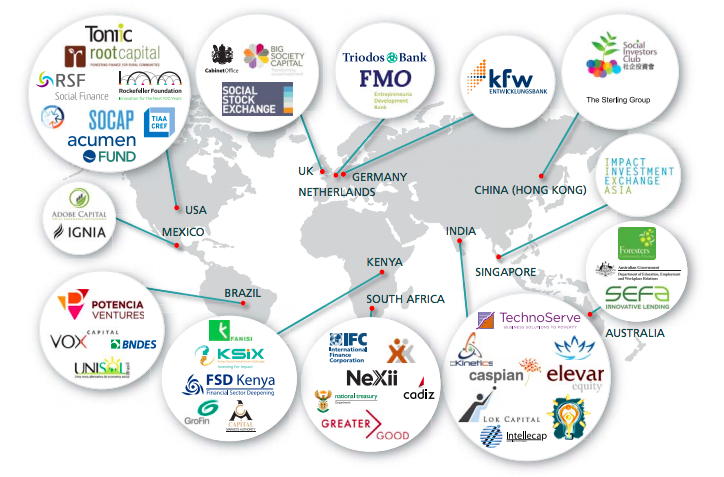Hi, Veronica Olazabal, senior associate director of evaluation at The Rockefeller Foundation here with Karim Harji, director at Purpose Capital. As many of you already know, market-based approaches to poverty alleviation are gaining traction across the social sector. A range of innovative strategies are being used to finance these initiatives, including impact investing—an approach to deploy various types of capital to intentionally deliver social impact alongside financial return.

There is clearly a strong need to strengthen impact measurement and evaluation in this space. Many evaluators have had limited engagement to date, but it is an emerging topic of interest, as demonstrated by the focus at the Evaluation 2014 AEA annual conference. Below, we outline a few ways the evaluation community can become more engaged with evaluating impact investing:
Lessons Learned:
- Break out your Theory of Change facilitation skills! Like more conventional social sector program-designs, impact investors have theories of how they expect change to happen, including assumptions and goals.While they may use an ‘investment thesis/approach’ instead of ‘theory of change,’ they often use these models to select, assess and monitor investments. Thus, it should not be surprising that theory of change has become a tool of emerging importance to impact investing. Rad Resource: Interrogating the theory of change.
- Use monitoring strategies to generate timely data: Monitoring can be an important strategy for tracking social performance, especially since investors already use financially-focused tools in this way. When designed and implemented well, monitoring data can provide timely and relevant information that can be used to adapt operational plans for investee enterprises or funds. For example, in the access to finance sector, monitoring has been used effectively to validate that target beneficiaries and clients are actually being reached. Rad Resource: Portfolios of the Poor
- Gain familiarity with emerging standards and approaches: There are a range of initiatives in this sector that seek to assess social change for a range of uses and users. For example, the Impact Reporting and Investment Standard System(IRIS) seeks to build a standard vocabulary/taxonomy at the output level, while Global Impact Investing Global Rating System (GIIRS) is a standards-based rating system that assesses impact funds and social enterprises.
As this area continues to evolve, more evaluation capacity will be needed at every level, and particularly around moving from lives touched (reach) to validating lives impacted (depth) in the field. Evaluators will be important not only to assess the intended and actual outcomes from individual transactions, but also to critically analyze how the field is contributing to market-based approaches to poverty alleviation.
Rad Resource: Assessing Impact Investing: Five Doorways for Evaluators – Ted Jackson and Karim Harji.
Do you have questions, concerns, kudos, or content to extend this aea365 contribution? Please add them in the comments section for this post on the aea365 webpage so that we may enrich our community of practice. Would you like to submit an aea365 Tip? Please send a note of interest to aea365@eval.org . aea365 is sponsored by the American Evaluation Association and provides a Tip-a-Day by and for evaluators.

Great to see this! Would love to see SVI and B Lab on here too as they’re on par with major influencers shown here. Also a more detailed, wiki-style map would be neat as a way to keep pace with this fast-developing field.